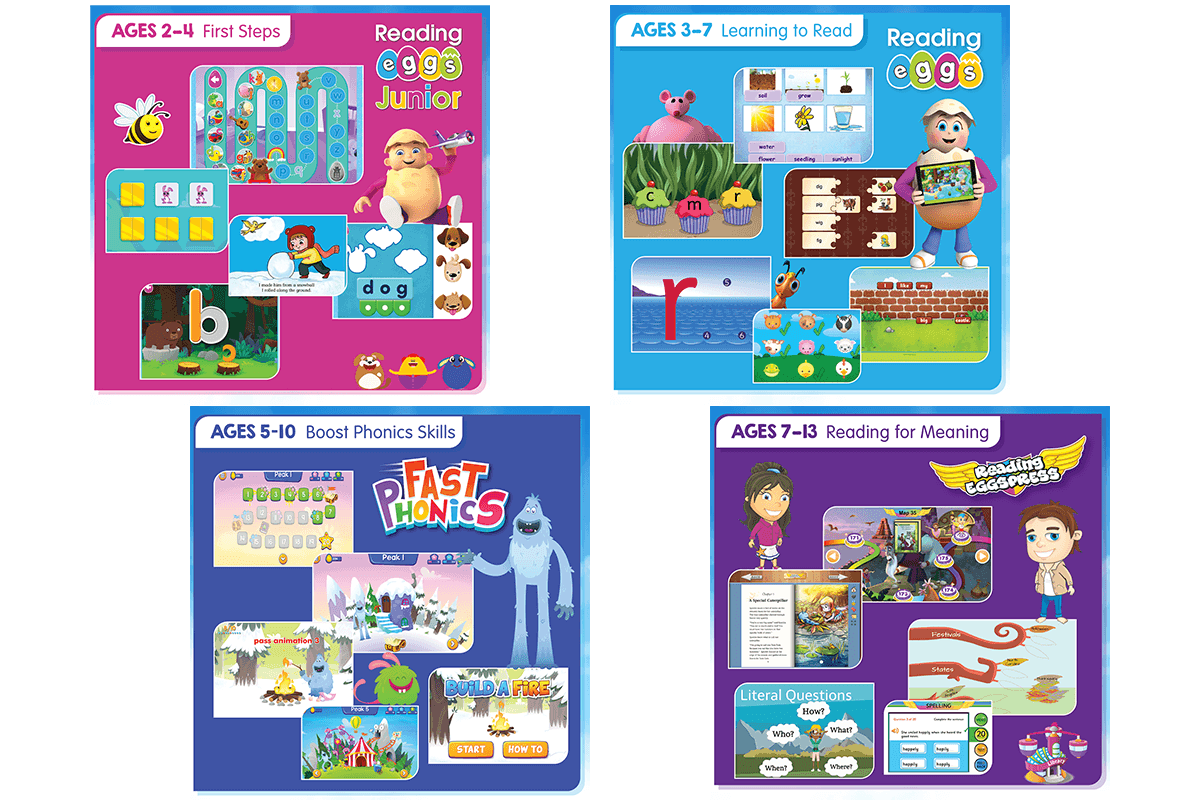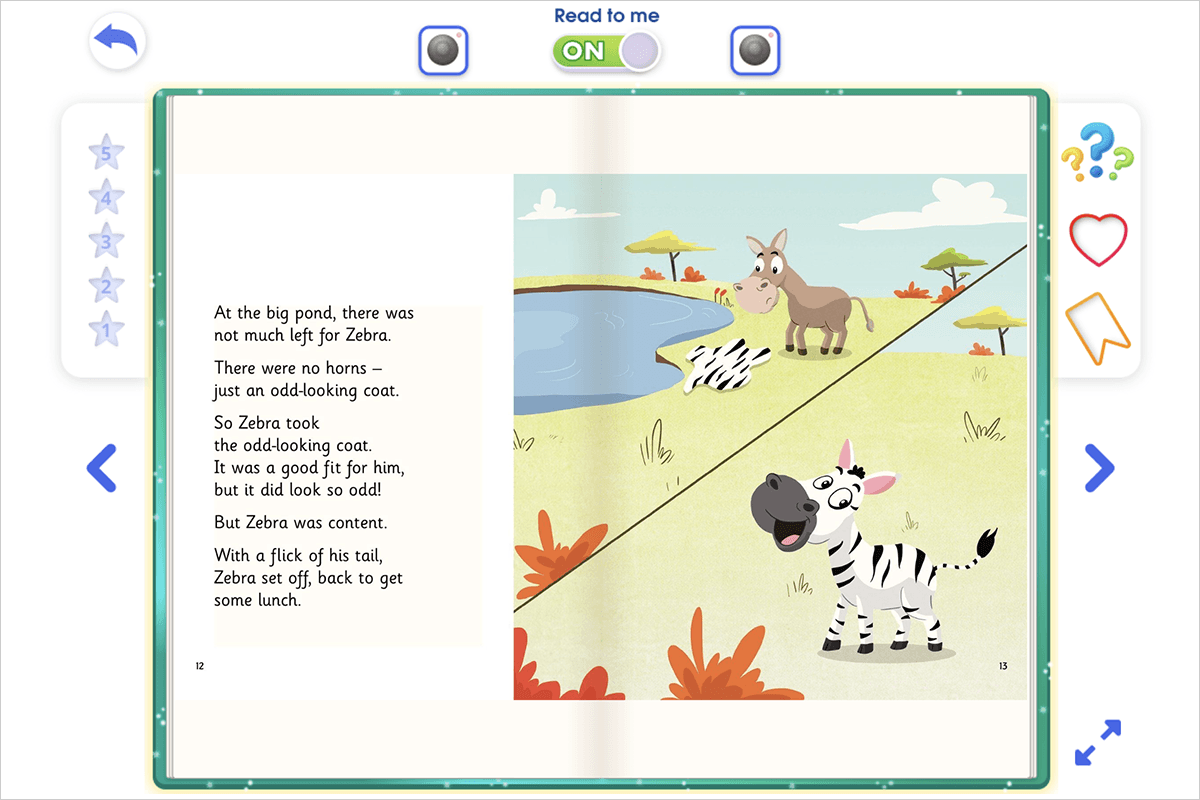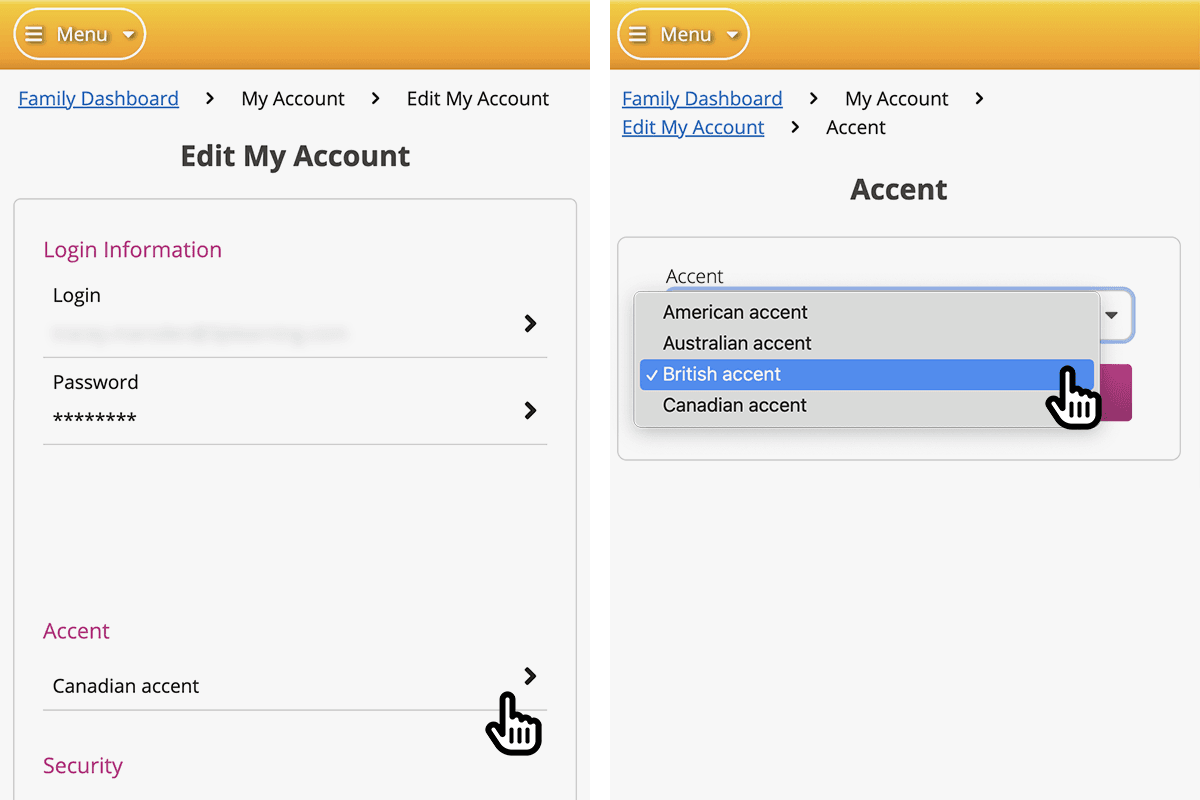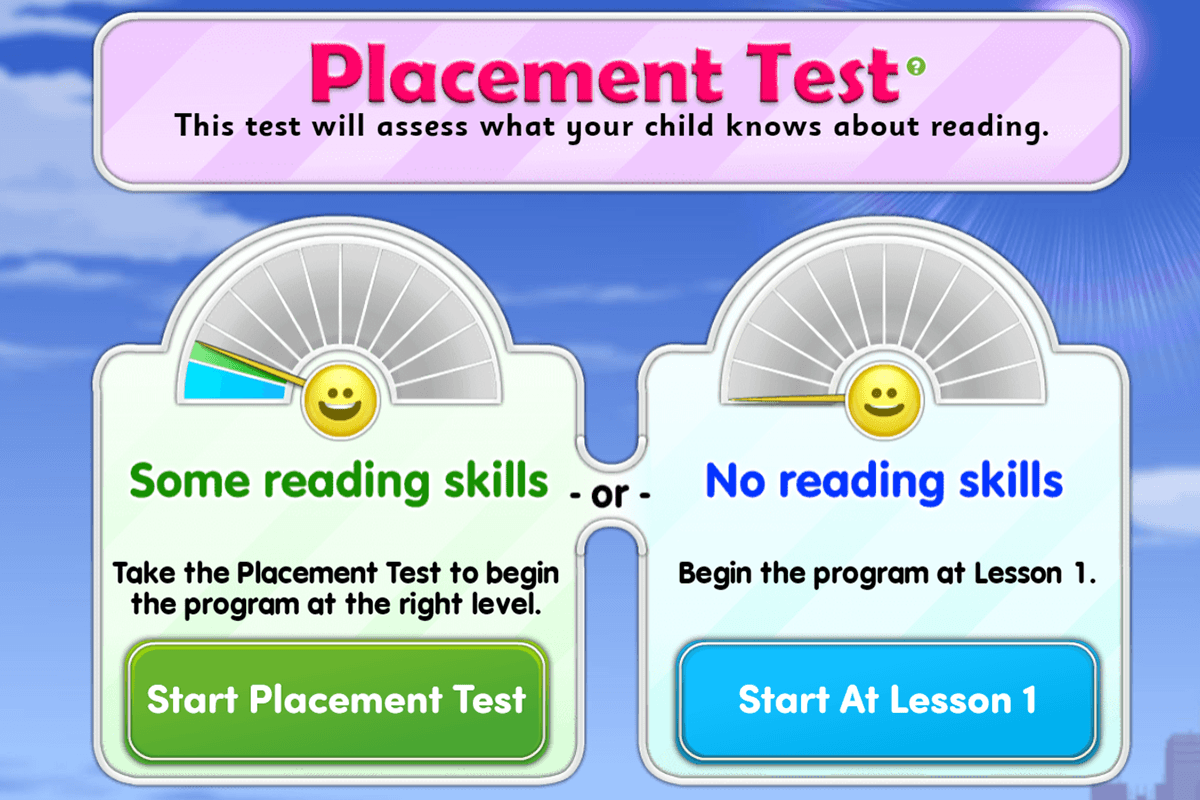


Why Local Pronunciation Matters in Children's Reading Programs

When 4-year-old Emma first started using online reading programs, her mother Sarah noticed something puzzling. Despite Emma's enthusiasm for learning, she would often hesitate when words were pronounced differently than what she heard at home.
It wasn't until Sarah discovered Reading Eggs' British English pronunciation option that everything clicked.
Suddenly, Emma was confidently sounding out words and her reading fluency improved.
This scenario plays out in homes around the world every day.
While many reading programs take a one-size-fits-all approach to pronunciation, research shows that children learn best when they hear familiar sounds that match their linguistic environment.
Reading Eggs recognises this critical connection, offering parents the choice between American, British and Australian English accent options.
This thoughtful customisation isn't just about preference – it's about giving children the best possible foundation for reading success.
By aligning the pronunciation they hear in their educational tools with the sounds they encounter in their daily lives, parents can help their children build confidence, reduce cognitive load, and accelerate their reading development journey.
science-behind-reading-development-jump-link
The science behind familiar sounds in reading development
Children's brains are remarkably attuned to the speech patterns they hear most frequently.
From birth, they begin cataloguing the specific sounds, rhythms, and intonations of their linguistic environment.
When learning to read, this stored knowledge becomes the bridge between spoken and written language.
Science of Reading research indicates that children process familiar pronunciation patterns more efficiently than unfamiliar ones.
When a child hears a word pronounced in their familiar accent, their brain can quickly access existing knowledge about that sound pattern, making it easier to connect the spoken word to its written form.

Children process familiar pronunciation patterns more efficiently than unfamiliar ones. Recognising this, Reading Eggs offers parents the choice between American, British and Australian accent options so that words like 'tomato' sound familiar to your child. Free trial
Children are simultaneously learning to decode letter-sound relationships, recognise sight words, and build comprehension skills.
When pronunciation adds an extra layer of unfamiliarity, it can create unnecessary cognitive load that slows down the entire learning process.
building-reading-confidence-jump-link
Building reading confidence through consistency
Confidence plays a massive role in reading development, and familiarity fosters confidence.
When children using an online reading program hear words pronounced the way they expect – matching what they hear from parents, teachers and the world around them – they can focus their mental energy on the actual mechanics of reading rather than processing unfamiliar speech patterns.
Consider the word 'zebra'. A British child accustomed to hearing a short 'e' sound might momentarily stumble when encountering the American pronunciation with a long 'ee'.
While this might seem like a minor difference, these small hesitations can accumulate, creating doubt and slowing progress.
The consistency between familiar pronunciation and educational tools also reinforces learning.
When children practise reading with pronunciation that matches their daily environment, they're strengthening the same neural pathways they use in real-world communication.
This creates a seamless connection between their reading practice and practical language use.
Build your child's reading confidence no matter where they are on their learning journey
Whether your family is at home or abroad, starting to read or advancing their skills, Reading Eggs provides a personalised learning experience that adapts to meet the needs of each child. With online reading lessons, fun games, thousands of e-books and lots of exciting rewards, your child’s confidence will flourish as their reading skills grow. Start your 30-day free trial today!
five-pillars-of-reading-jump-link
Pronunciation and the five pillars of reading
Pronunciation affects the five essential components of reading instruction in important ways:
Phonemic awareness develops through listening activities and sound manipulation exercises. Familiar pronunciation helps children identify and work with individual sounds more easily, supporting their ability to blend, segment and manipulate phonemes.
Phonics relies heavily on consistent letter-sound relationships. When pronunciation varies from a child's expectations, it can confuse these fundamental connections.
Vocabulary development accelerates when children can easily connect new words they hear to words they encounter in text. Unfamiliar pronunciation can create a disconnect, making it harder for children to build their vocabulary.
Fluency improves when children can read with natural rhythm and expression. Familiar pronunciation supports this natural flow, helping children develop the prosody that makes reading sound like natural speech.
Comprehension benefits when children aren't distracted by unfamiliar pronunciation patterns. When pronunciation feels natural, children can focus their attention on understanding meaning rather than processing unexpected sounds.

The suite of online programs within Reading Eggs caters to the reading development needs of children from ages 2–13. You can add up to four children to your account, making it a flexible and cost-effective educational resource for your family. Free trial
pronunciation-options-jump-link
The pronunciation options in Reading Eggs
Reading Eggs offers three pronunciation options:
American English provides the standardised pronunciation that matches what children hear in US schools, media and daily conversation. This option uses American spelling conventions and pronunciation patterns, making it ideal for families in the United States or international schools following American curricula.
British English includes both pronunciation differences and spelling variations that reflect UK standards. Children will encounter ‘colour’ instead of ‘color’, hear the distinctive British pronunciation of words like ‘plant’ and ‘dance’, and experience the rhythm and intonation patterns of British English.
Australian English captures the unique characteristics of Australian pronunciation, including the distinctive vowel sounds and speech patterns that make Australian English recognisable worldwide. This option ensures that Australian children hear pronunciation that matches their classroom and community environment.
The read-aloud books in Reading Eggs feature audio narration that automatically matches your account's accent settings, providing consistent modelling of pronunciation and fluency.
This means that when your child listens to stories, they're hearing the same pronunciation patterns they encounter in lessons and activities.

How do you pronounce 'zebra' in your family?
How to change your account’s accent settings
Changing your Reading Eggs accent setting is straightforward and takes effect immediately across the entire program. Here's exactly how to do it:
Log in as a parent and visit the Family Dashboard.
Under My Account > Edit My Account scroll down to the ‘Accent’ section. Click or tap on your current accent setting and choose from the options in the dropdown list (American accent, Australian accent, British accent or Canadian accent).
Then click or tap on the Update button.

Once you've made this change, the new setting applies consistently across all Reading Eggs programs and audio features for all children on your account.
Your child will immediately hear the selected accent in lessons, games, and e-books across programs, creating a seamless learning experience that matches your family's needs.
Beginning your Reading Eggs journey is easy and risk-free. Our 30-day free trial provides an excellent opportunity to test pronunciation options and see how your child responds to the program.
During the trial period, you can experiment with different accent settings to determine which option feels most natural for your child.
The beauty of the customisable pronunciation feature is that you can adjust it any time your family's needs change – whether due to relocation, school changes, or simply discovering that a different option works better for your child.
customisation-features-jump-link
Customisation beyond pronunciation

The Reading Eggs Placement Test ensures each child begins the program at the right level for their current abilities. Free trial
Reading Eggs' attention to pronunciation preferences represents just one aspect of the program's commitment to personalised learning.
From the moment a child begins using Reading Eggs, the program adapts to their individual needs and learning pace.
The placement test assessment system ensures that each child begins at the right level for their current abilities, preventing both boredom and frustration.
Parents can track progress through detailed reporting and reset levels if children need additional practice or to revise specific skills.
This flexibility allows families to adapt the program to their child's unique learning journey.
Multi-child families particularly appreciate Reading Eggs' ability to accommodate up to four children at various stages of reading development.
Parents can track their individual progress and ensure that each child receives appropriate challenges and support within the same family account.
You’ll receive detailed progress reports as your child completes online activities in Reading Eggs. Free trial
Reading Eggs printables and curriculum settings
The scope and sequence of the lessons in Reading Eggs are designed to align to different educational curricula, acknowledging that reading instruction varies between countries and educational systems.
When you first create a Reading Eggs account, your geographical location will be used to set the curriculum your child’s learning journey will be aligned with.
The free downloadable worksheets (located under Bonus Materials in the Family Dashboard) remain consistent with your assigned curriculum, regardless of your accent settings.
If you wish to change your child’s curriculum alignment settings, please contact our friendly Customer Support team online, by email or telephone.
Build your child's reading confidence no matter where they are on their learning journey
Whether your family is at home or abroad, starting to read or advancing their skills, Reading Eggs provides a personalised learning experience that adapts to meet the needs of each child. With online reading lessons, fun games, thousands of e-books and lots of exciting rewards, your child’s confidence will flourish as their reading skills grow. Start your 30-day free trial today!
How to choose the right accent option for your family

Whether you're supporting a child in their home country, navigating an international move, or maintaining cultural connections across distances, the right pronunciation choice can make a huge difference in your child's reading development.
Factors to consider
Geographic considerations are often the primary factor in choosing pronunciation options. Families should generally select the option that matches their local environment to ensure consistency between Reading Eggs and their child's daily language experience.
Family heritage considerations come into play for many families. Some parents want to maintain connections to their cultural background through language, choosing pronunciation options that reflect their family's origins even when living in a different country.
Educational context matters significantly. If your child attends a school that emphasises a particular English variant – such as a British international school in Asia or an American school in Europe – matching that pronunciation can support classroom learning and help children feel more confident during school reading activities.
Future planning might influence your choice if you're preparing for international moves. Families planning to relocate might choose pronunciation options that match their destination country, helping children begin adapting to their future linguistic environment.
Expat families
Expatriate families face unique challenges in maintaining linguistic consistency for their children.
American families living in the UK, Australia, or Canada often want their children to maintain connections to American English while adapting to their new environment.
Similarly, British families relocating to North America might choose to preserve British pronunciation patterns that connect their children to extended family and cultural heritage.
The flexibility to adjust pronunciation settings becomes particularly valuable during transition periods.
Families can start with their home country's pronunciation and gradually shift to match their new environment, providing children with continuity during what can be a challenging adjustment period.
Heritage and identity considerations
Language is deeply connected to cultural identity and pronunciation choices can help families maintain these important connections.
Grandparents teaching remotely across countries might find it easier to support their grandchild's reading development when the educational program uses familiar pronunciation patterns.
Multicultural households with diverse English backgrounds face interesting decisions about which pronunciation to emphasise.
Some families rotate between options, exposing children to multiple variants, while others choose one primary option for consistency.
These heritage considerations become particularly meaningful for families who want their children to maintain connections to extended family and cultural communities.
When grandparents or relatives visit, children can more easily share their reading progress when the pronunciation patterns feel familiar to everyone involved.
Maximising the benefits for school-aged children
To get the most value from Reading Eggs' pronunciation features, consider coordinating with your child's school. Many educators appreciate when families use educational tools that align with classroom instruction.
If your child's teacher emphasises a particular English variant, matching that choice in Reading Eggs can provide valuable reinforcement and support classroom learning objectives.
Creating consistency across all learning environments – home, school, and educational programs – gives children the best possible foundation for reading development.
International school communities
Children in international schools are often exposed to multiple English variants from teachers, classmates and educational materials.
In these diverse environments, parents must decide which pronunciation pattern will best support their child's education and future plans.
Some international schools emphasise a particular English variant in their curriculum – British international schools often focus on UK spelling and pronunciation, while American international schools typically use US conventions.
Matching Reading Eggs' pronunciation to the school's approach ensures consistency between home learning and classroom instruction.
This consistency becomes especially important during assessment periods.
Special learning needs
Children with speech delays or articulation difficulties often benefit significantly from consistent pronunciation patterns.
When all of their learning materials use the same accent and pronunciation style, these children can focus on developing their skills without the additional challenge of processing multiple speech patterns.
English language learners adapting to specific regional variants also benefit from consistency.
Children learning English as a second language need extensive exposure to consistent pronunciation patterns to develop accurate speech and reading skills.
When their educational tools match their community's English variant, they receive reinforcement for the pronunciation patterns they need to master.
Some children struggle particularly with accent variations, finding it difficult to recognise that different pronunciations represent the same words.
For these children, consistency in educational materials can be crucial for building confidence and maintaining progress.
An example of a read-aloud book in Reading Eggs Junior read with a British accent. Free trial
Why parents and educators choose Reading Eggs for personalised learning
"My daughter is 4 years old and is learning to read. We purchased Reading Eggs to supplement her learning and have absolutely no regrets. At the beginning, the child takes a placement test, so they can begin at the correct level and not be bored or frustrated. I find this extremely helpful. Not only is Reading Eggs educational, but it is really fun."
– Flora, Homeschooler
"What an 'egg-cellent' program. My daughter, who is 5 in May and due to start school, loves it and can't wait to do each lesson. Easy graphics, good pronunciation, a fantastic start to early reading. I will be purchasing the subscription. Well done!"
– Linzi
"I have been using Reading Eggs with my 4-year-old boy for a month now. It is a fantastic program and has completely removed any anxiety about progress and motivation in his reading. He loves doing the lessons and his progress is significant. More importantly, I have complete confidence that this is helping to equip him with the skills he needs to feel able to cope in school, despite being one of the youngest."
– Joanne
"My 4-year-old loves to have his computer time with Reading Eggs. He can’t wait for that time of the day to come. He has learned a lot and can read three-letter words, knows beginning sounds and rhyming words. I get reports after he takes the quizzes that tell me how he is progressing. I can reset the level if he needs more practice on something before advancing also. I highly recommend this product."
– Gwen K.
"[I] will be purchasing a subscription to Reading Eggs as my kids LOVE it and have to be dragged away from the computer for meals and baths. My 3-year-old is starting to read sentences and my 5-year-old is excited that the program complements his school work in Year 1."
– Lisa
"Reading Eggs was something that we used years ago with our older daughter. We had been using something different with our youngest and it was becoming stagnant. Reading Eggs has ignited her interest in reading and she has excelled quickly since we started our subscription. I am very pleased with the program; even my older son is enjoying using the older kids' version."
– Tawnee H.
"I'm loving Reading Eggs. I am a primary teacher and the mother of a 3-year-old. Two years ago I discovered your program and mentioned it to some parents who were working with their own children at home, but it wasn't until I started my son on it, about a month ago, that I discovered what a comprehensive and truly effective program it really is."
– Gilliane
Build your child's reading confidence no matter where they are on their learning journey
Whether your family is at home or abroad, starting to read or advancing their skills, Reading Eggs provides a personalised learning experience that adapts to meet the needs of each child. With online reading lessons, fun games, thousands of e-books and lots of exciting rewards, your child’s confidence will flourish as their reading skills grow. Start your 30-day free trial today!






